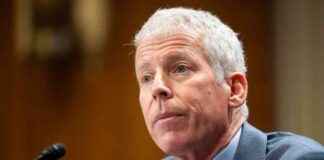Laura Beth Resnick, a flower farmer from Harford County, Maryland, recently found herself in a predicament. Her farm, Butterbee Farm, relies on greenhouses to produce flowers during the winter months, particularly for holidays like Valentine’s Day and Easter. To reduce her electricity costs, Resnick applied for funding from the Rural Energy for America Program (REAP) to install solar panels on her barn. After receiving a grant of $36,000 from the U.S. Department of Agriculture (USDA), Resnick installed the panels, only to face a setback when the agency refused to release the promised funds.
Resnick’s story is not an isolated incident. Along with five other farmers and three nonprofit organizations, she is now suing President Donald Trump and the USDA to demand the funds they were promised. The REAP program, established in 2008, aims to assist farmers in implementing renewable energy systems and energy efficiency projects. With an annual budget of $50 million from the Farm Bill, the program received a significant boost through the Inflation Reduction Act (IRA), providing an additional $820 million through 2031 to support these initiatives.
On Trump’s first day in office, he signed an executive order freezing IRA funds, including those earmarked for projects like Resnick’s solar panels. This freeze has left many farmers and organizations in a financial bind, unable to fulfill their commitments due to the withheld funds. Earthjustice, a legal advocacy organization, filed a lawsuit on behalf of Resnick and her co-plaintiffs, seeking a court order to compel the administration to release the funds as allocated by Congress.
The legal battle extends beyond the REAP program to include other USDA initiatives, such as the National Resources Conservation Services’ Technical Assistance Program and the U.S. Forest Service’s Urban and Community Forestry Program. Faith in Place, one of the co-plaintiffs, had secured $1.9 million through the forestry program to support planting trees in urban areas to mitigate extreme heat. However, the freeze on funds jeopardizes their efforts and calls into question the government’s commitment to upholding agreements with small businesses and community organizations.
Experts like Mike Lavender, policy director of the National Sustainable Agriculture Coalition, emphasize the importance of honoring legal contracts, regardless of political changes. Farmers who rely on these programs should not be left in limbo, forced to cover costs out of pocket while awaiting government decisions. The current situation raises fundamental concerns about contract law and the government’s accountability in fulfilling its commitments to citizens.
The lawsuit filed by Earthjustice underscores the urgency of addressing this issue and providing relief to farmers and organizations impacted by the frozen funds. The legal action seeks to hold the administration accountable for unlawfully withholding allocated resources, highlighting the constitutional implications of failing to disperse funds as directed by Congress. As the legal battle unfolds, the outcome will have far-reaching implications for farmers, environmental groups, and community organizations counting on these funds to support their initiatives.
In the face of bureaucratic hurdles and legal challenges, individuals like Laura Beth Resnick continue to advocate for the release of promised funds to ensure the viability of their projects. The lawsuit against President Trump and the USDA represents a broader struggle for accountability and justice, underscoring the importance of upholding legal agreements and supporting small businesses and community organizations in their efforts to promote sustainability and environmental stewardship. Stay tuned for updates on this evolving legal battle as farmers and advocates fight for their rights and the future of renewable energy initiatives.














